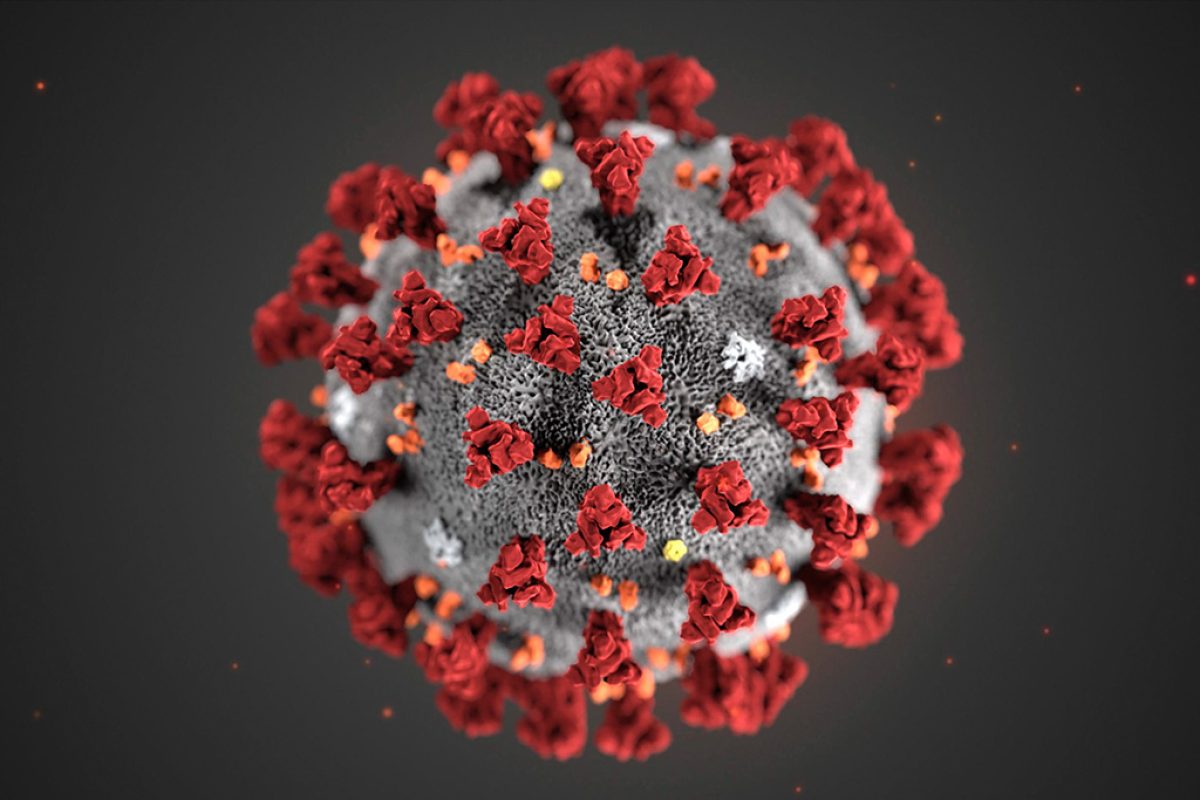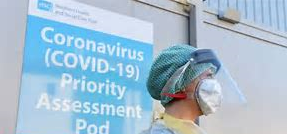RIGHTS IN A TIME OF CRISIS

What the Coronavirus response means for human rights
The world is changing before our eyes. The extent of the threat now posed by the Covid-19 pandemic has led to Governments across the world introducing extraordinary measures aimed at protecting the public from possible infection.
The UK last week introduced a very unprecedented set of measures aimed at limiting the spread of the Covid-19 virus. The Coronavirus Act[1] was rushed through Parliament and set out a range of measures aimed at protecting the public and responding to the particularities of the public health threat now being faced. A similar extension of these provisions to Northern Ireland was also established following the approval of a Legislative Consent Motion by the Assembly.
The provisions of the legislation have been described as drastic and draconian given the clear interference that many of the powers in the Act may have on personal freedoms.
Under Schedule 20, Part 5 of the Act there are considerable powers granted to public health officials and the police in relation to potentially infectious persons in Northern Ireland. These include directing, removing or requesting the police to remove a potentially infectious person to a place suitable for screening and assessment.

Schedule 21 makes additional powers for the Executive Office to close premises, events and restrict gatherings. While the powers in Clause 48, Schedule 18 provide Ministerial powers within a revised Public Health Act (Northern Ireland) to make further regulations across a number of areas. These include the detention, isolation or quarantine of persons or items entering or leaving Northern Ireland, or for the purpose of preventing, protecting against, controlling or providing a public health response to the incidence or spread of infection or contamination in Northern Ireland. Examples of special restrictions or requirements that could be introduced via new regulations include that a person submit to medical examination, be detained or removed to a hospital or other suitable establishment, be kept in isolation or quarantine and a range of other potential measures.
An added criticism has been that this legislation is enacted for too long a period. Other legislation such as the Civil Contingencies Act 2004 contains specific clauses that ensure that emergency regulations lapse after 30 days if they were not renewed by Parliament. The Coronavirus Act in quite a different approach gives the Government these powers for up to two years should it wish. There is provision for a six-month parliamentary review, but this does not allow for appropriate amendment or critique of elements of the Act and will instead be presented to MP’s as a negatively framed motion that the legislation should not expire.
There are also concerning elements of the Act that colleagues like BIHR have outlined in their analysis of the draft legislation which may have the potential to have a disproportionate impact on people with mental health issues, those people with special educational needs or patients being released from hospital.[2]
These provisions clearly conflict with a range of human rights provisions, not least freedom of assembly and the right to liberty and if the various powers under the legislation are eventually enacted, then a range of other rights such as the right to private and family life and various aspects of equality may be in question as well.

It would, however, be overly simplistic to see this legislation as solely a series of challenges to human rights protections. Existing human rights frameworks and legislation in the UK already take account of the fact that many circumstances will require a balancing of competing rights. The current Coronavirus emergency is no different and the Governments response could and should also be viewed as a series of measures aimed towards the protection of fundamental rights.
The right to life protected under Article 2 of the European Convention of Human Rights (ECHR), to which the UK is a signatory, is given domestic effect in the UK via the Human Rights Act (HRA). Under the provisions of Article 2 the Government assumes not only negative duties that prevent it from doing anything to violate the rights within the Convention, but also positive obligations that require it to take appropriate steps to achieve the protection of the rights in question.[3] In that regard many of the measures in the Coronavirus Act are mechanisms for enabling the states positive obligations to protect the Article 2 right to life which provides that there must be appropriate operational measures and regulatory frameworks in place to fulfil the duty. The UK Governments own impact assessment highlights this linkage between Article 2 duties and its current actions.[4]
Many of the same limitations on rights from the Coronavirus Act cited already (the powers to limit the movement of the public and potentially infectious person, limit public gatherings and close premises among others) while challenging the enjoyment of several rights are also designed, in the Government’s view, to protect the right to life within the context of a public health emergency.
Our human rights laws already allow us to deviate from certain protections in a limited number of circumstances. Article 15 of the European Convention on Human Rights allows States to derogate from many of the Convention rights during a time of emergency.[5]
The restrictions on people to aid in avoiding further infections, the streamlining of the registration of health professionals, the various provisions for payment of statutory sick pay and subsequent financial provisions for businesses, workers and key workers are all outlined as measures to limit the spread of the Coronavirus pandemic.
Under Section 19 of the Human Rights Act a Minister introducing new legislation is also obliged to make a statement outlining whether the legislation is compatible with Convention Rights. The Secretary of State for Health & Social Care has made this statement of compatibility and believes that while in some instances the measures introduced may impact on certain rights and that there may also be a ‘cumulative impact of the provisions on certain persons qualified rights’[6] that the interference is nevertheless proportionate and justified given the public health emergency and therefore compatible with the Convention rights.
What is also important within this context is the fact that the section 6 obligations of the Human Rights Act 1998 requiring all public authorities to act compatibly with the Convention rights will continue to apply regardless of the changes brought forward by the legislation.
The right to life duty therefore clearly places a requirement on the Government to take action to put in place systems and infrastructure to support the realisation of that right. Despite the wide-ranging nature of these powers there are clearly many elements of the legislation that are necessary in what is an extraordinary global situation.
The full impact of the Coronavirus Act, its Henry VIII powers and other regulation making powers both at a wider UK and devolved setting in Northern Ireland are not yet known and hopefully some of the worst fears about the legislation will not come to pass if administered within a compassionate proportionate and human rights based decision making framework.
As ever, our elected representatives continue to be primary agents of human rights change and protection. The awesome responsibilities and duties they are now granted under this legislation need to be continually scrutinised, deployed where appropriate, but ultimately set aside at the earliest possible moment.
Hopefully that time will come much sooner than later.
[1] Coronavirus Act 2020, https://www.legislation.gov.uk/ukpga/2020/7/contents/enacted
[2] https://www.bihr.org.uk/coronavirusbill-20march
[3] ‘Article 2, s1 enjoins the state not only to refrain from intentional and unlawful taking of life, but also to take appropriate steps to safeguard the lives of those within its jurisdiction.’ L.C.B vs UK, 9 June 1998, S36 https://hudoc.echr.coe.int/eng#{“itemid”:[“001-58176”]}
[4] ‘Article 2 may be relevant insofar as it imposes a positive obligation on the state to have in place a regulatory framework to protect life and to take preventative operational measures within the regulatory system for health and social care.’ Pt 48. https://publications.parliament.uk/pa/bills/cbill/58-01/0122/Memorandum%20to%20the%20Joint%20Committee%20on%20Human%20Rights%20-%20The%20Coronavirus%20Bill%202020.pdf
services to protect an individual whose life is at risk.
[5] ‘In time of war or other public emergency threatening the life of the nation any High Contracting Party may take measures derogating from its obligations under [the] Convention to the extent strictly required by the exigencies of the situation, provided that such measures are not inconsistent with its other obligations under international law.’ Article 15.1, European Convention of Human Rights
[6] Memorandum to the Joint Committee on Human Rights – The Coronavirus Bill 2020 – Introduction,